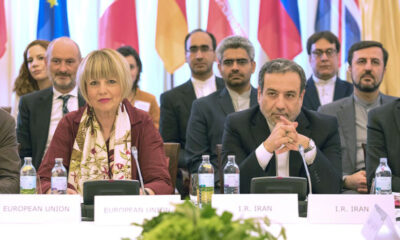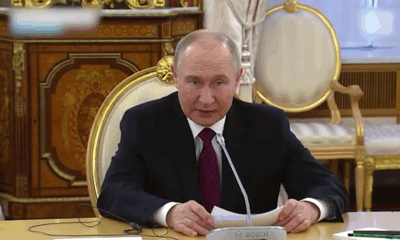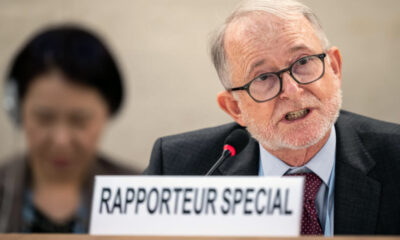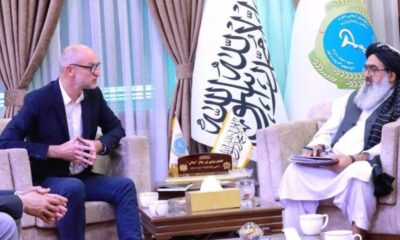Regional
Indian air traffic disrupted on third day of dense fog
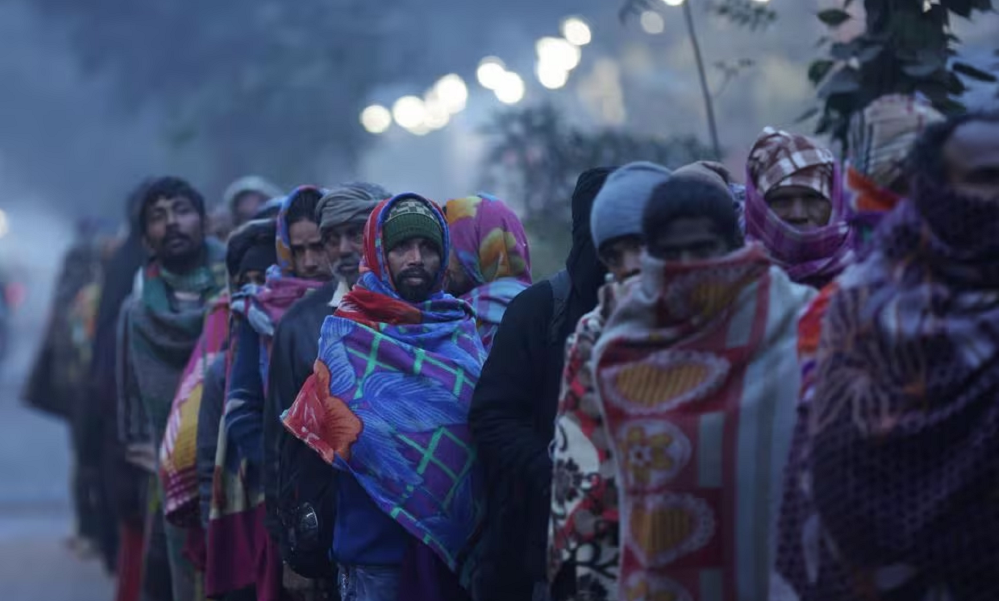
Dense fog swathed large parts of northern India on Tuesday for the third straight day of an intense cold wave, reducing visibility to disrupt more than 160 flights.
As many as 128 flights from the international airport in New Delhi, the capital, were delayed, with 33 canceled, aviation site Flightradar24 showed, an effect that cascaded through flight schedules nationwide.
Visibility at the airport stood at 50 m at 8 a.m., weather officials said, predicting similar conditions until the end of the week, Reuters reported.
New Delhi’s lowest temperature this winter was 3.3 degrees Celsius on Monday, when low visibility and dense fog caused the delay of as many as 500 flights and the cancellation of 87.
Angry passengers argued with airline staff in images on television and social media, with one video showing passengers eating dinner as they waited on the tarmac for a delayed flight.
On Monday, the aviation minister said authorities were hastening efforts to use an additional runway, equipped with the CAT III navigation system that enables aircraft to land despite low visibility.
Regional
Iran, Europeans to hold nuclear talks on Friday, diplomatic sources say
The European powers are not part of current negotiations between Iran and the United States, the fourth round of which ended in Oman on Sunday.
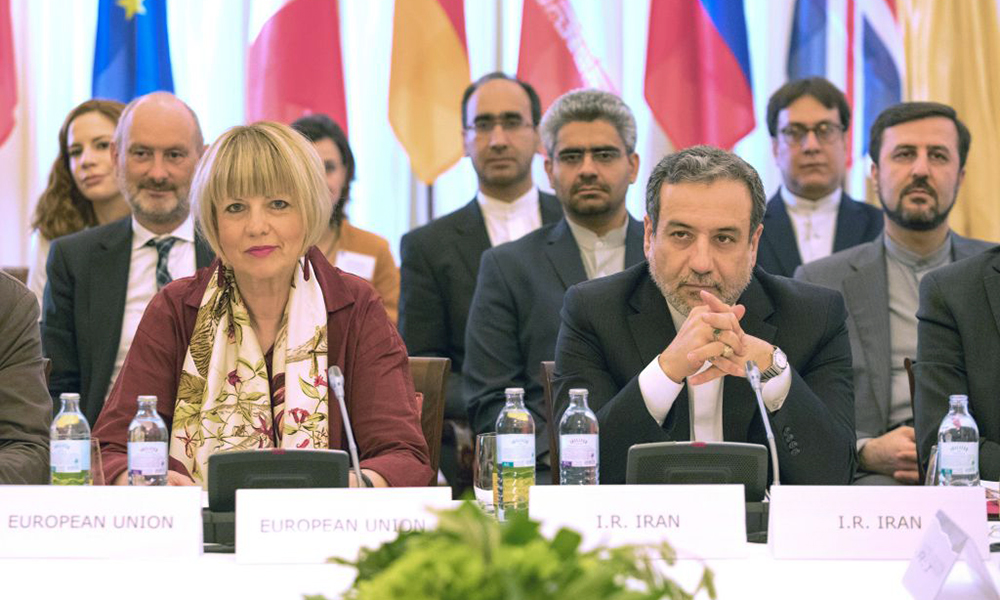
Iran will hold talks in Istanbul on Friday with European parties to their now-moribund 2015 nuclear deal, two European and an Iranian diplomatic source said on Tuesday,
The talks among senior diplomats come as both sides seek to position themselves ahead of an expected fifth round of U.S.-Iranian negotiations in the coming days, Reuters reported.
Earlier talks planned on May 2 were postponed with Britain, France and Germany, known as the E3, initially hesitant over concerns such talks could create a parallel track and hijack the negotiations pursued by the Trump administration that Washington says aim to prevent Iran from developing nuclear weapons.
But diplomats said they opted to go ahead because it was ultimately in their interest to maintain dialogue with Iran and reaffirm how they envisaged the parameters of a new nuclear deal.
Iran is also keen to hold the talks to keep its options open and assess where the European powers stand regarding the reimposition of U.N. sanctions, something Iran’s foreign minister warned them on Monday against doing.
Relations between the E3 and Iran have worsened over the last year despite sporadic meetings, against a backdrop of new sanctions imposed on Tehran over its ballistic missile programme, its detention of foreign citizens and support for Russia in its war against Ukraine, read the report.
Under terms of a U.N. resolution ratifying a 2015 nuclear pact, the three European powers could reimpose United Nations sanctions against Tehran before October 18, known in diplomatic circles as the “snapback mechanism.”
The European powers are not part of current negotiations between Iran and the United States, the fourth round of which ended in Oman on Sunday.
But the three powers have sought to coordinate closely with Washington with a view to whether and when they should use the snapback mechanism to raise pressure on Iran over its nuclear programme.
According to diplomats and a document seen by Reuters, the E3 countries may trigger a snapback by August if no substantial deal can be reached by then, Reuters reported.
The next round of talks between Iran and the U.S. to resolve disputes over Tehran’s nuclear programme will be held in the coming days after both sides have consulted with their respective capitals, according to Oman, which mediates the negotiations.
Regional
India PM Modi warns Pakistan of more strikes if there is a ‘terrorist attack’
Modi’s address came hours after the military operations chiefs of India and Pakistan spoke by phone, two days after they agreed to the ceasefire.

Indian Prime Minister Narendra Modi warned Pakistan on Monday that New Delhi would target “terrorist hideouts” across the border again if there were new attacks on India and would not be deterred by what he called Islamabad’s “nuclear blackmail”, Reuters reported.
Modi’s first public comments since Indian armed forces launched strikes on what New Delhi said were “terrorist camps” across the border last week indicated a hardening of India’s position on ties with its neighbour, which were icy even before the latest fighting.
Pakistan denies Indian accusations that it supports militants who attack it and says the locations hit by India last week were civilian sites.
Modi was speaking two days after the nuclear-armed neighbours agreed to a ceasefire, announced by U.S. President Donald Trump.
The truce was reached after four days of intense exchanges of fire as the old enemies targeted each other’s military installations with missiles and drones, killing dozens of civilians.
The military confrontation began on Wednesday, when India said it launched strikes on nine “terrorist infrastructure” sites in Pakistan and Pakistani Kashmir following an attack on Hindu tourists by Islamist militants in Indian Kashmir last month that killed 26 men.
Islamabad denied any links to the attack and called for a neutral investigation.
“If there is a terrorist attack on India, a fitting reply will be given… on our terms,” Modi said, speaking in Hindi in a televised address. “In the coming days, we will measure every step of Pakistan… what kind of attitude Pakistan will adopt.”
“India will strike precisely and decisively at the terrorist hideouts developing under the cover of nuclear blackmail,” he said, and listed New Delhi’s conditions for holding talks with Islamabad and lifting curbs imposed after the Kashmir attack.
“India’s position is clear: terror and talks cannot go together; terror and trade cannot go together. And water and blood cannot flow together,” he said, referring to a water sharing pact between the two countries New Delhi suspended.
There was no immediate response to his comments from Islamabad.
Hindu-majority India and Muslim Pakistan both rule part of the Himalayan region of Kashmir, but claim it in full. They have fought two of their three wars since independence in 1947 over the region and there have been several other more limited flare-ups, including in 2016 and 2019, read the report.
The latest military conflict between the South Asian neighbours spiralled alarmingly on Saturday and there were briefly fears that nuclear arsenals might come into play as Pakistan’s military said a top body overseeing its nuclear weapons would meet.
But the Pakistani defence minister said no such meeting was scheduled.
Military analysts said this may have been Pakistan’s way of hinting at its nuclear option as Islamabad has a “first-use” policy if its existence is under threat in a conflict.
Modi’s address came hours after the military operations chiefs of India and Pakistan spoke by phone, two days after they agreed to the ceasefire.
“Issues related to continuing the commitment that both sides must not fire a single shot or initiate any aggressive and inimical action against each other were discussed,” the Indian army said.
“It was also agreed that both sides consider immediate measures to ensure troop reduction from the borders and forward areas,” it added.
There was no immediate Pakistani readout of the military operations chiefs’ talks.
In Washington, Trump said the leaders of India and Pakistan were “unwavering”, and the U.S. “helped a lot” to secure the ceasefire, adding that trade was a “big reason” why the countries stopped fighting.
“We are going to do a lot of trade with Pakistan… and India. We are negotiating with India right now. We are soon going to negotiate with Pakistan,” he said, just ahead of Modi’s speech.
Pakistan has thanked the U.S. for brokering the ceasefire while India, which opposes third-party involvement in its disputes with Pakistan, has not commented on Washington’s role.
Pakistan’s international bonds rallied sharply on Monday, adding as much as 5.7 cents in the dollar, Tradeweb data showed.
Late on Friday, the International Monetary Fund approved a fresh $1.4-billion loan and also the first review of its $7-billion programme, Reuters reported.
Pakistan’s benchmark share index (.KSE), closed up 9.4% on Monday, while India’s blue-chip Nifty 50 (.NSEI), index closed 3.8% higher in its best session since February 2021.
In Beijing the foreign ministry said China, which also controls a small slice of Kashmir, was willing to maintain communication with both its neighbours, and play a “constructive role in achieving a comprehensive and lasting ceasefire” and maintaining peace.
India blames Pakistan for an insurgency in its part of Kashmir that began in 1989, but Pakistan says it provides only moral, political and diplomatic support to Kashmiri separatists.
Regional
Indian air force says losses are part of combat but all pilots back home
A Pakistani military spokesperson told Reuters on Wednesday that five Indian aircraft had been shot down, but the claim was not confirmed by India.

The Indian Air Force said on Sunday that “losses are a part of combat” without giving details but added that all its pilots were back home after fighting with Pakistan this week, responding to a question on whether the force suffered losses.
A Pakistani military spokesperson told Reuters on Wednesday that five Indian aircraft had been shot down, but the claim was not confirmed by India.
Also on Wednesday, four government sources in Indian Kashmir told Reuters that three fighter jets crashed in the federal territory, hours after India said it struck nine Pakistani “terrorist infrastructure” sites across the border.
A ceasefire appeared to hold on Sunday between India and Pakistan, hours after the nuclear-armed rivals accused each other of violating a truce that brought them back from the brink of all-out war.
The ceasefire was agreed on Saturday after four days of missile, drone and artillery attacks which killed at least 60 people and sent thousands fleeing, in the worst violence since India and Pakistan’s last open conflict in 1999.
-
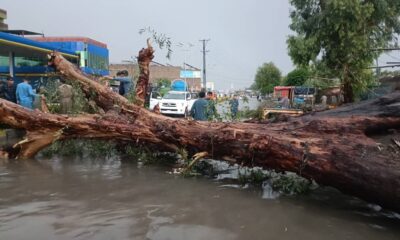
 Latest News5 days ago
Latest News5 days agoOne dead, dozens injured as powerful storm strikes Jalalabad, Afghanistan
-

 Latest News5 days ago
Latest News5 days agoEx-Afghan deputy speaker Qadeer back in Kenyan court for criminal case
-
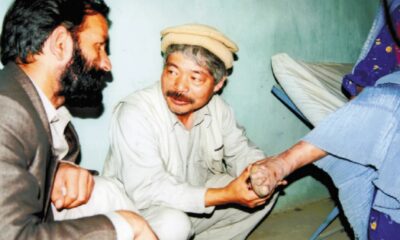
 Health5 days ago
Health5 days agoJapanese charity Peshawar-Kai to resume leprosy treatment in Afghanistan
-
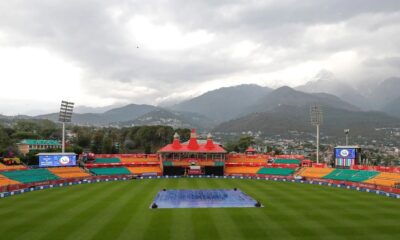
 Sport5 days ago
Sport5 days agoIndia suspends Indian Premier League T20 cricket tournament
-

 Latest News4 days ago
Latest News4 days agoPakistan says India launched attack on Afghanistan, India denies
-

 Latest News5 days ago
Latest News5 days agoMCC Chief: Afghan cadres sent to China for AI training
-

 World4 days ago
World4 days agoUS offers to help India and Pakistan start talks, G7 also urges dialogue
-
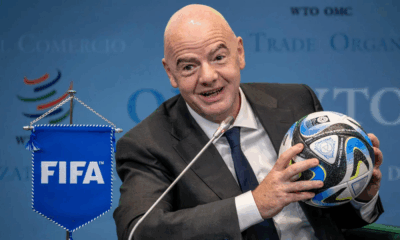
 Sport4 days ago
Sport4 days agoFIFA OKs creation of Afghanistan women’s refugee team


